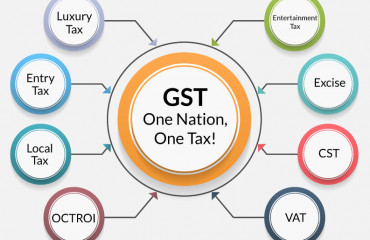
India's lowering of borrowing requirement is expected to push private investment which will cushion the country's economic growth to 8.2% in the current financial year FY23. ICICI Securities' chief economist expects the GDP to further accelerate by 9% in fiscal 2023-24.
India's lowering of borrowing requirement is expected to push private investment which will cushion the country's economic growth to 8.2% in the current financial year FY23. ICICI Securities' chief economist expects the GDP to further accelerate by 9% in fiscal 2023-24.
In a research note, Prasenjit K. Basu, Cheif Economist at ICICI Securities said, "Our estimate is that real GDP will be reported to have grown 5% YoY in Q4FY22, implying 9% real GDP growth in FY22. But this headline growth will be despite the large discrepancy between the current account balance and the inflation-adjusted net exports of goods & services (the latter having subtracted 3pp from real GDP growth in FY22). This will provide a large cushion to be adjusted in the subsequent year(s), as real GDP will have been artificially under-estimated in FY21 and FY22."
For first half of FY23, Basu said, "we expect growth to remain export-led, with domestic demand also benefitting from the low-base of Q1FY22 (when India was hit by serial lockdowns in different states during the second wave of covid)."
In April 2022, goods exports grew 30.7% YoY – and were 54.4% higher than their pre-covid level in April 2019.
Basu said, 'We believe the improved export performance reflects productivity gains in the goods-export sectors, arising from heightened FDI and other investment in exportable goods and related infrastructure. India's own recently-imposed restraints on exports (of wheat and steel, for instance) will adversely impact merchandise export growth in Jun'22 and beyond, although the buoyancy of other engineering goods, chemicals, electronics, and textiles/garments exports should continue to deliver strong (but gradually decelerating) growth in Jun-Sep'22."
Further, Basu said, with global trade likely to decelerate sharply beyond Sep'22 as the impact of the US Fed and ECB's abrupt shift to monetary tightening causes US and Eurozone domestic demand to weaken significantly, India's exports too will grow less rapidly in H2FY23, although still likely posting about 11% nominal growth in FY23 (while global trade volume decelerates to 6% growth in CY23).
In the second half of FY23, Basu expects the baton of Indian growth to pass from exports to fixed-investment spending.
ICICI Securities data showed that the unofficial estimate of corporation tax revenue in FY22 is 17.7% higher than the budgeted revenue from corporation tax in FY23, while the FY22 income tax revenue receipts are also 7% higher than the budgeted figure for FY23. GST revenue for FY22 was only 8.3% lower than the projection for FY23. The direct tax buoyancy implies that even modest estimates of revenue growth in FY23 will take actual collections far above the budgeted numbers, while GST revenues too will exceed the budget targets by at least 5%.
Basu said, "Despite the recent reduction in petrol and diesel excise duties, we expect the fiscal deficit in FY23 to moderate to 5.6% of GDP (vs the official estimate of 6.2%). The lower deficit (driven by stronger revenue) will reduce the government's net market borrowing, especially in H2FY23. Lower market borrowing by the government will help crowd-in private investment. Tentative signs of the turnaround in bank credit were already visible in MarApr'22 (with credit growth accelerating to 9.9% YoY growth in Apr'22, and over 11% YoY on 6th May22), and are likely to gain momentum as the reduced government borrowing becomes evident, contributing to excess liquidity in the banking system, and inducing banks to enhance credit-supply to a de-leveraged corporate sector (that is much better positioned to borrow than it was 5-7 years ago)."
Thereby, the chief economist estimates that the fiscal deficit in FY23 will be only 5.6% of GDP (much lower than the official estimate of 6.2% of GDP) as direct tax revenues in FY22 have already exceeded the FY23 projections.
According to the economist, the recently-announced cuts in excise duties will not alter that outlook, as corporate and personal income tax revenues stay strong, as do GST revenues.
"The government's substantially lower borrowing requirement (especially in H2FY23) will help crowd in more private investment, delivering 8.2% real GDP growth in FY23," the economist said.
For the fiscal FY24, Basu said, "The low, globally competitive corporate tax rate (25%, and just 17% for new manufacturing units), more flexible labour market (aided by the contract labour law) and the production-linked incentive (PLI) scheme will draw in substantially more fixed investment across a
broadening swathe of industry, enabling real GDP to accelerate to 9% in FY24, aided by the cushion of FY22 statistical discrepancies."
The economist also believes for growth to accelerate to 10% or more by FY24 requires labour-intensive manufacturing to gain momentum, helping to draw low-productivity labour from agriculture towards better-paying and far more productive manufacturing and service-sector jobs.
